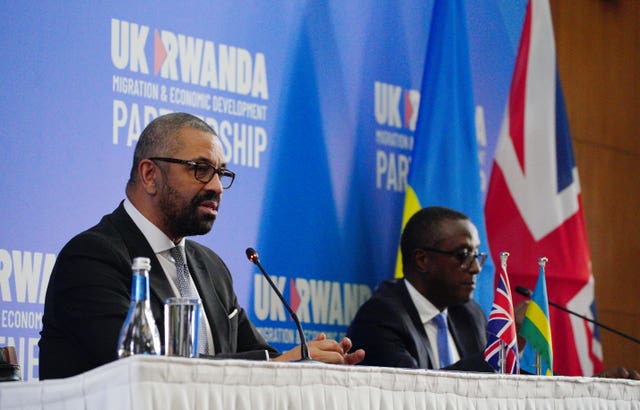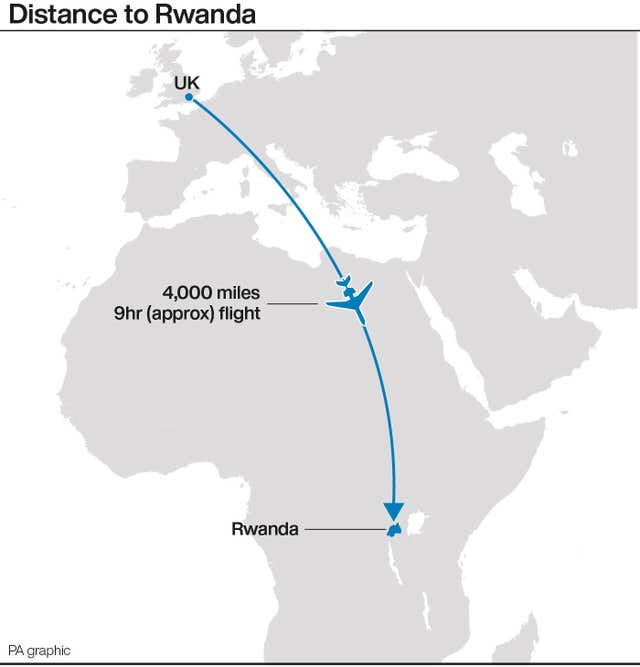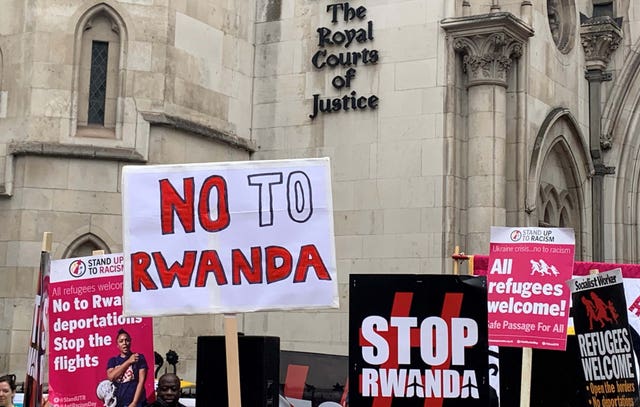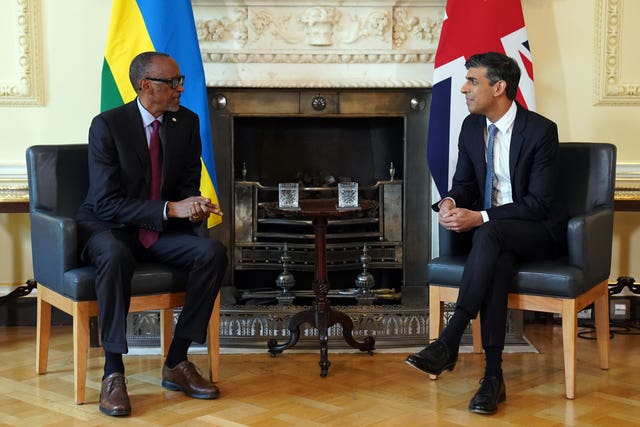James Cleverly has insisted his new legally-binding treaty with Rwanda addresses all of the reasons that caused the Supreme Court to deem the Government’s flagship asylum policy unlawful.
The Home Secretary said he “cannot see any credible reason” to question the nation now after he signed the deal in Kigali, where he hopes the first migrant flights will land in the spring.
Mr Cleverly said categorically at a post-signing press conference on Tuesday that the UK has not paid any more money to Rwanda in addition to the £140 million already handed over.
But he signalled that there will “inevitably” be further costs to cover the new burdens imposed on the Rwandan legal system.
“Of course, when a country is taking on responsibilities as Rwanda is doing, it is right and proper that there is remuneration to reflect the additional costs that they are bringing on,” Mr Cleverly said.
The Home Secretary promised that “emergency” legislation will come before Parliament “soon” to determine that Rwanda is a safe destination, under the second tier of the Government’s approach.
But he could not guarantee that the first group of asylum seekers who arrive in the UK on small boats would be sent to Kigali on a one-way ticket in the coming months.

Instead, he told reporters: “We want to see this part of our wider migration plan up and running as quickly as possible.
“We feel very strongly that this treaty addresses all of the issues raised by their lordships in the Supreme Court and we have worked very closely with our Rwandan partners to ensure that it does so.”
He said he “cannot see any credible reason” to question Rwanda’s track record, adding: “I really hope that we can now move quickly.”
On November 15, the UK’s top court blocked the policy over concerns that genuine refugees could be wrongly sent back to their countries of origin where they would face persecution.

In an attempt to rectify this, the new treaty means British and Commonwealth judges will preside over a newly-established appeals process within Rwanda’s high court for exceptional cases.
Another key measure is a commitment that no-one will be removed by Rwanda to any other country other than to the UK.
Experts from the UK will also be seconded to Rwanda to assist with the processing of asylum decisions.
People sent to Rwanda will have free legal assistance funded by the taxpayer throughout the process.

Mr Cleverly said no new money was directly connected to the document following disputed reports of a £15 million top-up payment, but did not rule out additional costs in the future.
“Let me make it clear. The Rwandan government has not asked for and we have not provided any funding linked to the signing of this treaty,” he said.
“The financial arrangement which inevitably comes as part of an international agreement reflects the costs that may be imposed on Rwanda through the changes that this partnership has created in their systems, in their legal systems and their institutions.”
After signing the deal with Mr Cleverly, Rwanda’s foreign affairs minister Vincent Biruta expressed his frustration at the judgment by some of the UK’s top justices.

He suggested “internal UK politics” may have played a role and said his country has been “unfairly treated” by the courts, international organisations and the media.
But he committed to improving the Rwandan asylum system so it is “fair and transparent”.
The Law Society of England and Wales was sceptical, saying it “remains unclear” how the treaty will overcome the Supreme Court ruling based on a “well-established principle of international law”.
Nick Emmerson, the president of the professional association representing solicitors, argued that neither the deal nor new legislation “can overnight provide adequate means of safeguarding the rights of people removed to Rwanda”.
Prime Minister Rishi Sunak met Rwanda’s president Paul Kagame on the sidelines of the Cop28 climate talks in Dubai on Friday as part of the push to finalise the deal.
Mr Cleverly is the third home secretary to travel to Rwanda since Priti Patel signed the initial deal last April. His predecessor, Suella Braverman, visited Kigali earlier this year.
But so far no asylum seekers have been sent to the country due to the hard-fought legal battles.
You may also like: New legislation gives government permission to snoop on your bank account

